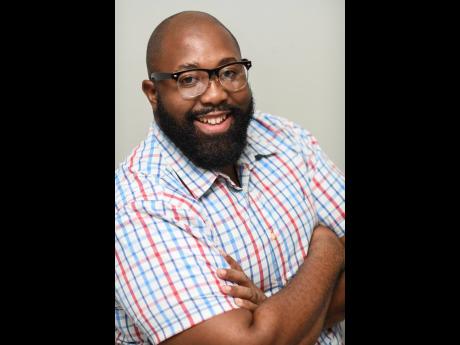Jerome Reynolds | Twisted logic on black hair
If education is the key to upward mobility, sadly, some in Jamaica’s school system are in need of a remedial lessons as they are stuck at the back of the class.
Some school administrators and teachers have abandoned their senses in openly discriminating against the hairstyles of black boys and girls on the grounds of the much-flogged mantra, ‘rules are rules’.
It is upsetting that public schools funded by taxpaying Jamaicans turn around and operate like private enterprises, coming up with their own regimen. Defending one’s arbitrary, nonsensical, “divinely inspired” rules should not stand above what’s right and lawful. If in doubt of the consequences of such a mindset, go speak with ‘Road Runner’ Bishop Dr Gary Welsh, the booted head of the police’s traffic and public order branch.
Structure and order should be supported in learning institutions. Children need guidance and direction. Agreed. But school rules must operate within the confines of the law. All Jamaicans, whether they are teachers, students or principals, enjoy the freedoms guaranteed under the Constitution. We cannot pick and choose which rights are to be respected.
The Charter of Fundamental Rights and Freedoms tells us that “all persons in Jamaica are entitled to preserve for themselves and future generations the fundamental rights and freedoms to which they are entitled by virtue of their inherent dignity as persons and as citizens of a free and democratic society”.
Jamaicans enjoy, among other things, freedom from discrimination on the grounds of being male or female in addition to race, place of origin, social class, colour, religion or political opinions.
We are also guaranteed the right to life, liberty and security of the person and the right not to be deprived, as well as the right to equitable and humane treatment by any public authority in the exercise of any function.
Special provisions
Lawmakers even made special provisions for children.
The Jamaican child is given “the right to such measures of protection as are required by virtue of the status of being a minor or as part of the family, society and the State; and who is a citizen of Jamaica, to publicly funded tuition in a public educational institution at the pre-primary and primary levels”.
It should be noted that some countries and local authorities, recognising the harsh realities of discrimination, have gone the length of giving protection to black people and their hairstyles.
In July, California became the first American state to sign into law a bill that prohibits workplaces and schools from discriminating against black people and their wearing of hairstyles such as braids, twists, and locks.
Legislators argued that the law aims to put a stop to the abuse meted out to black people.
It was pointed out that the bill was influenced, in part, by the viral video in 2017 of a black New Jersey high-school wrestler having his dreadlocks cut off in order to compete.
Locally, the fight for the acceptance of black hair has been a struggle.
Some would recall the days when natural-haired Jamaicans faced hard times in multiple sectors of society.
Yes, we have improved, but the ugly heads of stereotypes, prejudices and discrimination have not gone away.
What’s sad is that some of our children continue to be exposed to these cruelties and, in doing so, we reinforce that cycle.
STOP IT
It is wrong and we should stop it. We are sending the unfortunate message to these young souls that something is wrong with them and that their hair is ‘bad’.
It is disheartening that over and over, some of our children, especially those of the Rastafarian faith or those who like to wear dreadlocked hairstyles, are given ‘demerits’ for carrying their hair in its natural form. Some are always at the ready to beat the hair of our boys and girls into submission. We have to recognised that hair is a part of self-expression and identity. Black hair is beautiful and dynamic.
We all have been exposed at some point in our lives to the ‘good hair vs bad hair’ debate. Many of us have been badly affected by ‘dry-head boy’or ‘picky-picky gal’ comments. Some have luckily healed the wounds while others are a work in progress.
Some easily find excuses to justify their policing of black hair and, by extension, black bodies, but they need to stop and examine why they think the way they do.
There should be a national transfusion initiative to remove the blood of the former colonisers that still runs deep in the veins of some Jamaicans, as it explains their hatred of blackness.
In Jamaica, race, class and gender are close schoolmates that always sit beside each other. How some of us are perceived or treated is linked to how we look, where we live, and how we wear our crown.
Some, unfortunately, see fault in black hair, but have no issue giving a passing grade to the hairstyles of other textures. The chains of colonialism and classism have weighed down some of us in Jamaica for far too long and it’s time we free ourselves.
When we look at our brothers and sisters in the human family, we should seek to lift them up, not to tear them down.
Let’s start that process by accepting all hairs as equal.
- Jerome Reynolds is an online news editor. Email feedback to columns@gleanerjm.com and jerome.reynolds@gleanerjm.com.

